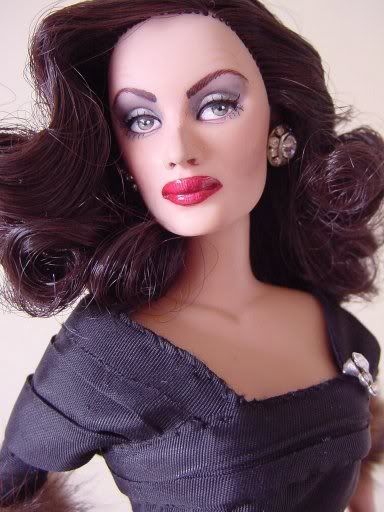Why I Hate 8
My numbers have always had colors and personalities. Some of them don't get along. Others are inseparable. Some of my match-ups are obvious: 7=green=lucky. Others less so: 3=purple (this has something to do with R, which is why I often confuse 3, purple, and R). I don't think anthropomorphizing my numbers is all that uncommon--after all, most of us learned our numbers via colored blocks and refrigerator magnets. But my number/color association is deep and complicated and sometimes interferes with my daily life. For example, I'm teaching a unit on hermaphroditism and intersex movements right now and I keep forgetting which is the "girl" chromosome combo, which is the "boy."
See, in my world 4=pink=y, so xy must be female, right? Wrong.
Did I mention that my numbers are gendered as well? Yeah. As best I can figure out, this world view, deeper than any book learning, and certainly not reflected in my lived life, was shaped by a childhood spent watching soap operas from 9:30 in the morning, when Search For Tomorrow came on, until 3:30 in the afternoon, when The Edge of Night finished. I can't remember a time in my early childhood when they were not on in the background as my mom did housework. That's how I learned that you should never overdose on pills, even if you are in prison (Morgan Fairchild, as Jennifer on Search For Tomorrow), and that if you are married and expecting you are "going to have a baby," as in "Oh darling, we're going to have a baby," but if you are not married, (or at least not married to the person who got you that way) you are pregnant, as in "Yes, Roger, I'm pregnant." (The Guiding Light, circa 1974, Holly Bauer and Roger Thorpe plot arch number one). So in my earliest understandings of gender are completely shaped by a not only facile, but hyperbolic, soap opera construction of gender. Stayed tuned for more on that in my Why Is Barbie Always Pregnant and Injured? post, coming soon.
So 1-5 are strictly girls, 6-9 are boys. I don't really pay that much attention to the edges--1 and 2 are too young to really count, and 9 is so untouchably cool that it's not even worth my time trying to catch his attention.
When people ask me to explain my number system I usually begin with 5 and 6. 5 is red, and she's a confident, spunky tomboy who is best friends with her cousin, 6, who is blue. They love to have sleepovers and make the number 11 (which I guess makes that more of a fort made out of sofa cushions than a number, but like I said, I never paid much attention to the big numbers). Neither is fettered by complicated gender roles. They just are who they are. 6 is a sensitive, dreamy boy who makes lots of beautiful purplish/blue combinations like 36. And we all know how much 5 kicks ass, because multiplying with her is always a cinch; you can count by fives almost faster than you can count by 2s. (2=orange).
The number that always killed me was 4. I don't know if that's because she's the number I related to, and or the number I feared I was supposed to relate to. Actually, I do know: she was both, and that makes her the key to my earliest understandings of, and anxieties about, gender. She was so delicate, so soft, so pink. She's the number version of Clara in Heidi, staring wistfully over the balcony from her wheelchair as Heidi (a total number 5) eats dinner with the grownups. What worried me the most was that 4 had no will of her own, and that anytime 8 wanted her to do his bidding, she had to obey. If 4 symbolized ultra-femininity, the absolute feminine ideal, then that means that even when I doubled her, my childhood self couldn't imagine her adding up to a challenge to manliness, or in 8's case, a pretense of manliness. 4+4=the girl is lost forever, caught up in the pudgy, unformed hatefulness of 8.



